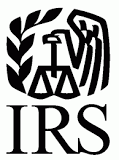The Internal Revenue Service today released Notice 2019-59 announcing cost of living adjustments affecting dollar limitations for pension plans and other retirement-related items for tax year 2020.
Highlights Affecting Plan Sponsors of Qualified Plans for 2020
- The contribution limit for employees who participate in 401(k), 403(b), most 457 plans, and the federal government’s Thrift Savings Plan is increased from $19,000 to $19,500.
- The catch-up contribution limit for employees aged 50 and over who participate in 401(k), 403(b), most 457 plans and the federal government’s Thrift Savings Plan is increased from $6,000 to $6,500.
- The limitation under Section 408(p)(2)(E) regarding SIMPLE retirement accounts is increased from $13,000 to $13,500.
- The limit on annual contributions to an IRA remains unchanged at $6,000. The additional catch-up contribution limit for individuals aged 50 and over is not subject to an annual cost-of-living adjustment and remains $1,000.
- The limitation on the annual benefit under a defined benefit plan under Section 415(b)(1)(A) is increased from $225,000 to $230,000.
- The limitation for defined contribution plans under Section 415(c)(1)(A) is increased in 2019 from $56,000 to $57,000.
- The annual compensation limit under Sections 401(a)(17), 404(l), 408(k)(3)(C), and 408(k)(6)(D)(ii) is increased from $280,000 to $285,000.
- The dollar limitation under Section 416(i)(1)(A)(i) concerning the definition of key employee in a top-heavy plan is increased from $180,000 to $185,000.
- The dollar amount under Section 409(o)(1)(C)(ii) for determining the maximum account balance in an employee stock ownership plan subject to a five year distribution period is increased from $1,130,000 to $1,150,000, while the dollar amount used to determine the lengthening of the five year distribution period is increased from $225,000 to $230,000.
- The limitation used in the definition of highly compensated employee under Section 414(q)(1)(B) is increased from $125,000 to $130,000.
The IRS previously Updated Health Savings Account limits for 2019. See our post here.
The following chart summarizes various significant benefit Plan limits for 2018 through 2020:
| Type of Limitation | 2020 | 2019 | 2018 |
| 415 Defined Benefit Plans | $230,000 | $225,000 | $220,000 |
| 415 Defined Contribution Plans | $57,000 | $56,000 | $55,000 |
| Defined Contribution Elective Deferrals | $19,500 | $19,000 | $18,500 |
| Defined Contribution Catch-Up Deferrals | $6,500 | $6,000 | $6,000 |
| SIMPLE Employee Deferrals | $13,500 | $13,000 | $12,500 |
| SIMPLE Catch-Up Deferrals | $3,000 | $3,000 | $3,000 |
| Annual Compensation Limit | $285,000 | $280,000 | $275,000 |
| SEP Minimum Compensation | $600 | $600 | $600 |
| SEP Annual Compensation Limit | $285,000 | $280,000 | $275,000 |
| Highly Compensated | $130,000 | $125,000 | $120,000 |
| Key Employee (Officer) | $185,000 | $180,000 | $175,000 |
| Income Subject To Social Security Tax (FICA) | $137,700 | $132,900 | $128,400 |
| Social Security (FICA) Tax For ER & EE (each pays) | 6.20% | 6.20% | 6.20% |
| Social Security (Med. HI) Tax For ERs & EEs (each pays) | 1.45% | 1.45% | 1.45% |
| SECA (FICA Portion) for Self-Employed | 12.40% | 12.40% | 12.40% |
| SECA (Med. HI Portion) For Self-Employed | 2.9% | 2.9% | 2.9% |
| IRA Contribution | $6,000 | $6,000 | $5,500 |
| IRA Catch-Up Contribution | $1,000 | $1,000 | $1,000 |
| HSA Max. Contributions Single/Family Coverage | $3,550/ $7,100 | $3,500/ $7,00 | $3,450/ $6,900 |
| HSA Catchup Contributions | $1,000 | $1,000 | $1,000 |
| HSA Min. Annual Deductible Single/Family | $1,400/ $2,800 | $1,350/ $2,700 | $1,350/ $2,700 |
| HSA Max. Out Of Pocket Single/Family | $6,900/ $13,800 | $6,750/ $13,500 | $6,650/ $13,300 |
